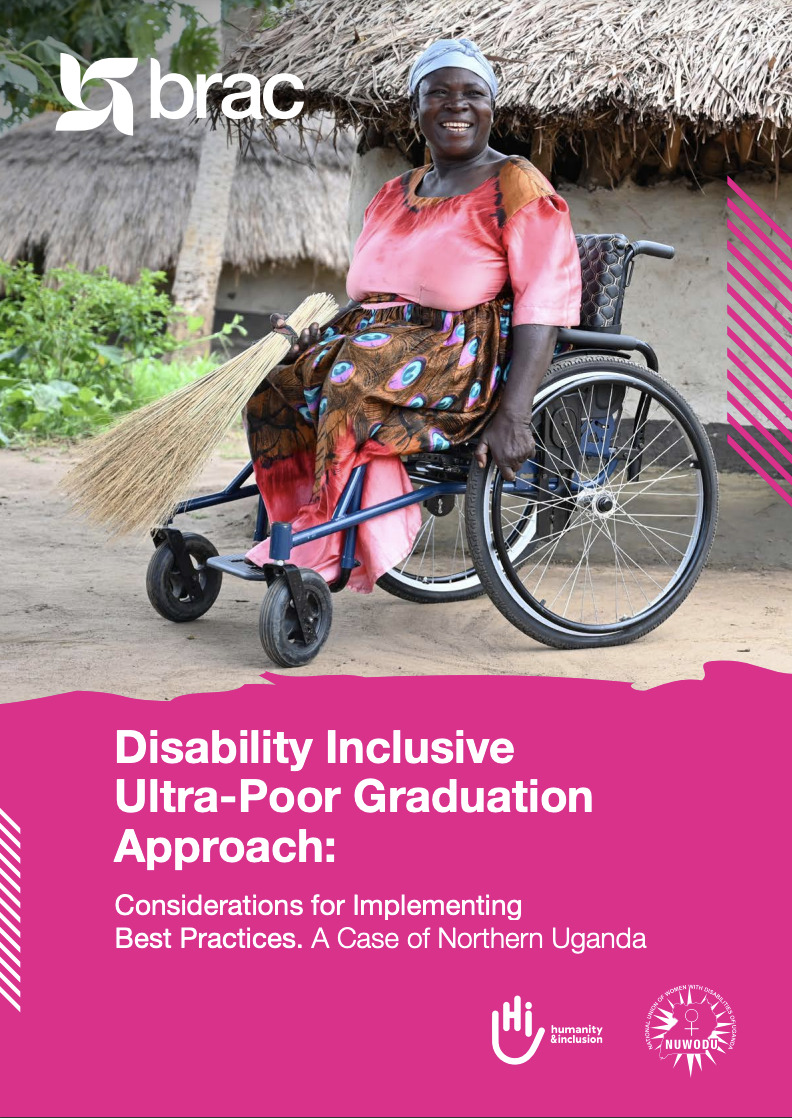Disability Inclusive Ultra-Poor Graduation Approach: Considerations for Implementing Best Practices, A Case of Northern Uganda
By Anu Kumar • March 2, 2023 • 1 minute read

This resource highlights considerations to be made when designing, implementing, and evaluating a Disability Inclusive Ultra-Poor Graduation Approach encompasses learnings taken from the Disability Inclusive Graduation (DIG) project in Uganda implemented by BRAC, Humanity and Inclusion, and the National Union of Women with Disabilities of Uganda (NUWODU).
This Implementation Best Practices Considerations (hereafter referred to as the DIG Considerations) therefore seeks to document and create a knowledge base of best practices for consideration by programs that seek to contribute to the alleviation of extreme poverty through adapting BRAC’s Ultra-Poor Graduation approach with disability inclusive lenses. Learnings in this case will focus on documenting best practices for consideration that will ensure the “Graduation Approach” is tailored to meet the needs of extremely poor persons living with disabilities.
The DIG Considerations are tailored to ensure all core Graduation Approach Pillars are adapted to meet the various needs of ultra-poor persons with disabilities. Adapting graduation pillars further ensures that reasonable accommodation is available throughout all program interventions to support ultra-poor persons with disabilities who have barriers to active participation in development initiatives bridged to create opportunities for them to increase their functional autonomy. This will contribute to ensuring that ‘no one is left behind’ as the world works towards meeting the ambitious Sustainable Development Goal to “end poverty in all of its forms everywhere” by 2030.

